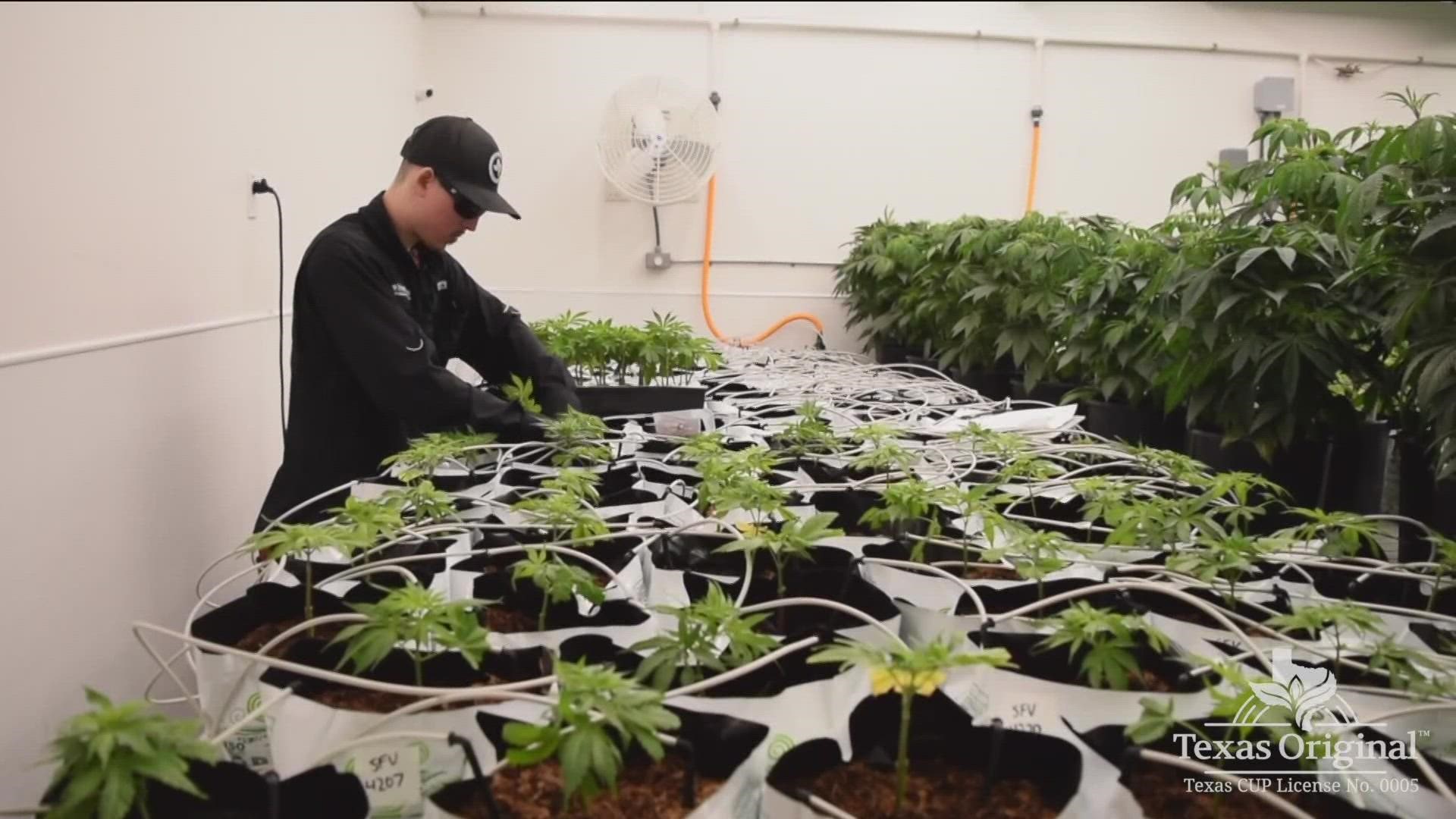AUSTIN, Texas — The Texas Department of Public Safety recently opened an application process to potentially add more medical marijuana dispensaries, but some say the state needs to expand who can use it first.
"Texas is a hot button right now because everyone's calling saying, 'I want a dispensary,'" said cannabis lawyer Michelle Donovan. "I was like, 'Hold on a second, hold on.'"
Donovan said a lot of people want in on the Texas medical marijuana business. Applications had been closed for four years but, this week, DPS started accepting applications for new medical marijuana dispensary licenses.
Donovan said the process is not simple.
"You have to be fingerprinted," said Donovan. "You have to go through a background check. You have to give your corporate structure. You have to basically give, you know, your security system for the dispensary. How is this going to operate? Because it doesn't operate in the normal course."
That's on top of a slew of financial qualifications, like the more than $7,000 fee to apply. She also said you need enough money to sustain the business for at least two years.
"By the time we're done, you know, the form is, you know, 200 pages," said Donovan.
In 2015, the Legislature approved the Compassionate Use Act, making low-THC medical marijuana legal for patients with intractable epilepsy. In 2019, it was expanded to cover neurodegenerative diseases and terminal cancer.
In 2021, it was expanded again for all forms of cancer and PTSD.
There are only three licensed medical marijuana businesses in the Lone Star State. Texas Original in South Austin is one of them. CEO Nico Richardson said before adding more dispensaries, the State needs to expand who can qualify so demand can meet supply.
"What we see across the system today is likely somewhere more in the vicinity of about 8,000 patients that are ordering on a monthly basis or less," said Richardson. "There are three licenses. If you look outside of Texas into states like Florida or New York that also have restrictive but well-functioning medical cannabis programs, they have somewhere between 25,000 and 30,000 active ordering patients per license."
Richardson said the lack of customers is due to the restrictive patient qualifications.
"We simply do not have enough patients in the system within the teacup to actually support the three licenses as as they currently are today," said Richardson.
Richardson is pushing for lawmakers to expand medical marijuana use for chronic or acute pain that would be prescribed instead of an opiate.
So far, about a dozen cannabis-related bills have been filed.
"We see other medical markets across the country who have reduced rates of opiate deaths in medical markets, medical cannabis markets," said Richardson. "You have reduced rates of prescriptions being written for opiates in those markets."
The Compassionate Use dispensary application closes on April 28.
The State said it will announce if any applications are approved after the legislative session.

